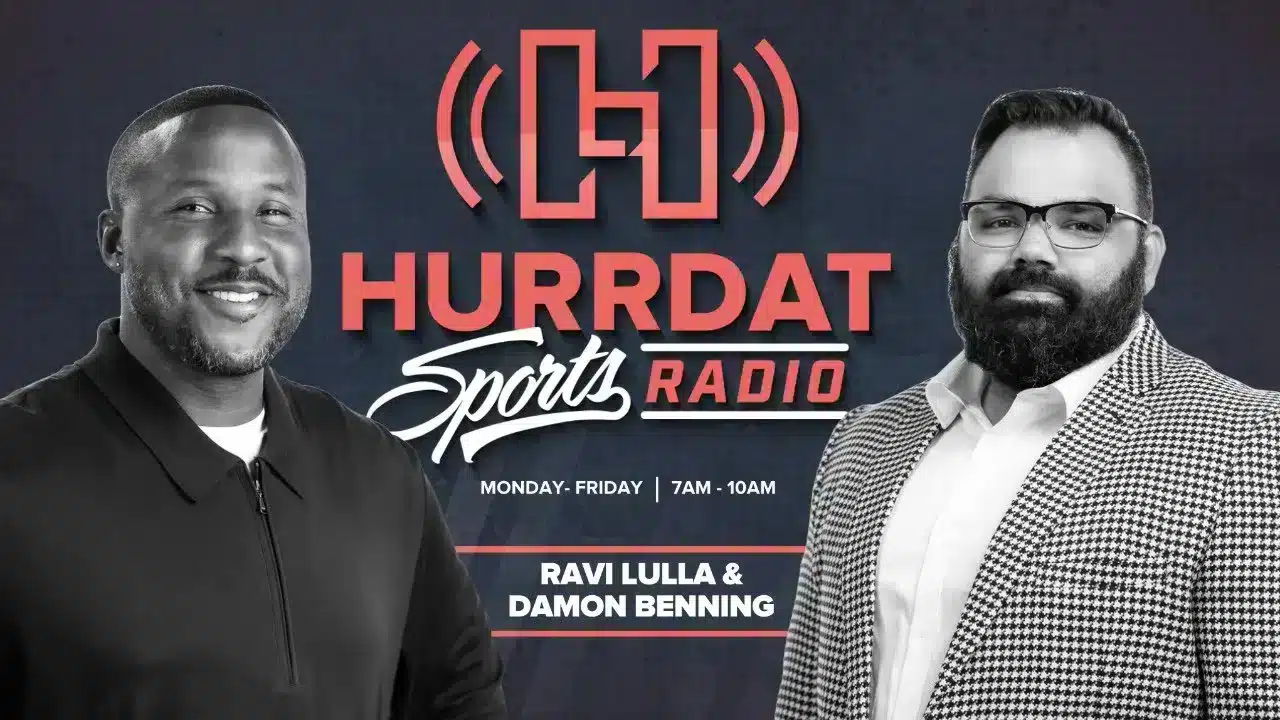Today on Hurrdat Sports Radio, NFL Network’s Cynthia Frelund joins Ravi Lulla and Damon Benning to break down some of the latest developments in the league, focusing on team strategies, recent trades and shifting trends in the NFL.
NFL Trades and the Evolution of Team-Building Strategies
Cynthia Frelund discusses the NFL’s growing embrace of trades, which she suggests may be inspired by the NBA’s player mobility model. This shift allows NFL franchises to make strategic moves without long-term commitment risks. A key example in this is the 49ers’ trade for Christian McCaffrey. The strategy is notable because they leveraged Brock Purdy’s rookie contract to invest in experienced players like McCaffrey, enhancing their roster without compromising future assets.
DeAndre Hopkins’ Impact on the Chiefs
Frelund points out that wide receiver DeAndre Hopkins has already proven valuable to the Kansas City Chiefs by providing quarterback Patrick Mahomes with a crucial option amid a wave of injuries in the Chiefs’ wide receiver lineup. She argues that Hopkins’ skill set could make him one of the NFL’s best mid-season moves, particularly given his experience in big-play situations. His addition gives Mahomes could be a game-changer for Kansas City’s Super Bowl aspirations.
The Detroit Lions’ Rise: Strategic Roster Building
The Lions’ strategy includes quarterback Jared Goff consuming only about 12% of Detroit’s cap space. Freland notes that this financial structure has enabled the Lions to build a stronger roster overall. She praises Detroit’s approach of emphasizing line strength, particularly on the offensive side, calling the Lions’ offensive line “one of the best in the NFL.” This solid foundation, combined with Goff’s affordable contract, has allowed the Lions to invest in high-value free agents and draft picks, propelling them to competitive success.
The Dan Campbell Effect on the Lions
Detroit head coach Dan Campbell is a unique figure in today’s NFL, managing to combine strong leadership with the ability to delegate effectively to his coordinators. Frelund praises Campbell’s approach, noting his “football heart and soul” mentality and predicting that his two coordinators could become head coaches next season. Campbell’s style has given the Lions a focused identity, built on toughness and strategic thinking — a formula that is proving effective in their ascent.
Revaluing the Running Back Position
Looking toward future drafts, Frelund expresses some skepticism about the resurgence of high draft value for running backs, despite Detroit’s success with early pick Jahmyr Gibbs. She anticipates that while talented backs like Gibbs may justify late-first-round selections, the days of drafting running backs in the top 10 are fading. Instead, teams will likely weigh factors such as market demand and free agency costs, reserving top picks for premium positions like quarterback, left tackle and wide receiver.
Playoff Outlook and Second-Half Predictions
Frelund shares her assessments for several teams heading into the second half of the season. She is optimistic about the Falcons, thanks to their favorable NFC South division, but remains cautious with the Texans due to ongoing offensive line issues. The Bills, despite facing a tough schedule, have already secured key divisional wins, giving them a solid position in the AFC. Meanwhile, the Steelers face a more challenging path in the AFC North, where divisional competition with teams like the Ravens and Bengals creates a tough playoff battle.
Finally, Frelund hints at the growing appeal of head coaches like Campbell and Mike Vrabel, whose leadership and adaptability are increasingly valued by NFL franchises. As teams seek fresh approaches to rebuild and compete, coaches in that mold could be in high demand in the coming seasons.




